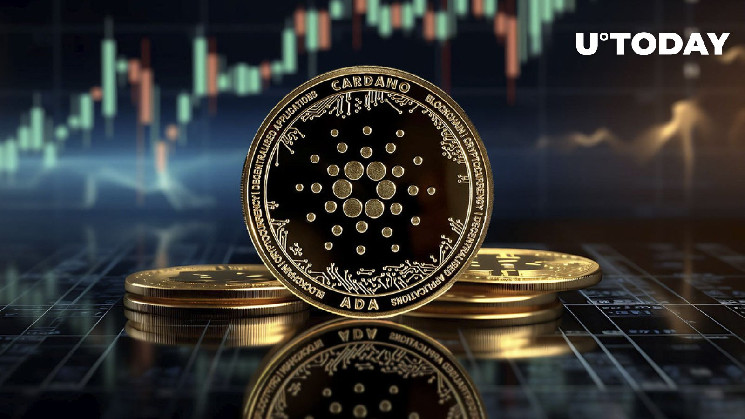
Cardano (ADA) has witnessed a substantial increase in the creation of new wallets over the past few days.
Specifically, the number of new ADA wallets per day has surged from 1,706 on Feb. 22 to 3,219 by Feb. 24, marking a significant uptick in adoption and interest in the Cardano network.
This growth comes at a time when ADA\'s price stands at $0.5861 after seeing a 1.6% increase against the dollar and a 1.4% rise compared to Bitcoin with a 24-hour range between $0.581 and $0.5996.
The increasing wallet count suggests a growing confidence and interest in Cardano\'s potential.
Continued growth
While the recent surge in new ADA wallets is promising, it\'s important to contextualize this growth within the broader trends of the Cardano network.
Notably, the daily creation of new wallets still falls short of the peak seen on Feb. 2, when the network experienced a record 5,414 new wallets in a single day.
Despite this, the total number of Cardano wallets is on the brink of reaching 4.6 million, with the number of delegated wallets—those participating in the network\'s proof-of-stake consensus mechanism—surpassing 1.3 million. This continued growth indicates a solid and expanding foundation for the Cardano ecosystem, even as it faces the ebb and flow of market dynamics.
Investor sentiment and wallet distribution
Over the last 30 days, wallets holding between 0 and 10 ADA saw a 1.06% increase, according to data provided by IntoTheBlock. This indicates a rise in small-scale investors or newcomers to the Cardano ecosystem.
Conversely, wallets with holdings ranging from 10 to 1,000 ADA generally experienced a decrease, with those holding 100 to 1,000 ADA witnessing a 0.54% decline.
Interestingly, larger investors, particularly those holding between 1 million to 10 million ADA, saw a 1.01% increase, and even more substantial growth was observed in the 10 million to 100 million ADA bracket, which increased by 2.14%. This data suggests a diversifying investor base, with both small and large-scale investors adjusting their positions in response to market developments.
